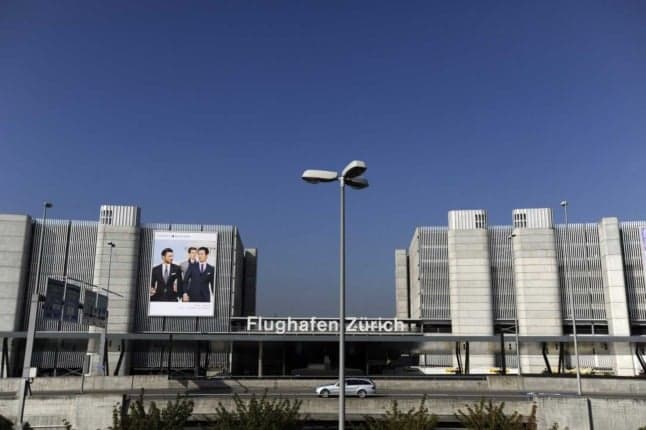Returning tourists fuel Zurich’s Covid case spike

Covid-19 cases are on the rise in Zurich, Switzerland’s most populous canton. What’s the reason for the increase?
The number of daily coronavirus cases has doubled in Switzerland in the past two weeks, sparking fears that a new coronavirus wave is emerging.
In Zurich, the impact of tourism on case numbers is clear. The number of cases in the canton has more than tripled in the past two weeks.
Almost one in two cases in the canton is detected among tourists, according to contact tracers in the canton.
This is especially those returning from Spain, but also from Greece.
As it stands, there are few restrictions on travel within the Schengen region, although negative tests and/or proof of vaccination or recovery may be needed.
EXPLAINED: How to use Switzerland’s Covid app when travelling in the EU
Most infections have been detected in young people, particularly in the 20-29 age group.
The fact that this age group has been hardest hit is perhaps not surprising, considering they have some of the lowest rates of vaccination.
While the increase in case numbers is a concern, it has not been accompanied by a rise in hospitalisations and deaths.
In fact, Switzerland has not seen a coronavirus death for over a week.
This is consistent with results in other nations which have seen a spike, such as Spain and the United Kingdom.
In these countries, while case numbers are on the rise, hospitalisations and deaths remain relatively low.
Comments
See Also
The number of daily coronavirus cases has doubled in Switzerland in the past two weeks, sparking fears that a new coronavirus wave is emerging.
In Zurich, the impact of tourism on case numbers is clear. The number of cases in the canton has more than tripled in the past two weeks.
Almost one in two cases in the canton is detected among tourists, according to contact tracers in the canton.
This is especially those returning from Spain, but also from Greece.
As it stands, there are few restrictions on travel within the Schengen region, although negative tests and/or proof of vaccination or recovery may be needed.
EXPLAINED: How to use Switzerland’s Covid app when travelling in the EU
Most infections have been detected in young people, particularly in the 20-29 age group.
The fact that this age group has been hardest hit is perhaps not surprising, considering they have some of the lowest rates of vaccination.
While the increase in case numbers is a concern, it has not been accompanied by a rise in hospitalisations and deaths.
In fact, Switzerland has not seen a coronavirus death for over a week.
This is consistent with results in other nations which have seen a spike, such as Spain and the United Kingdom.
In these countries, while case numbers are on the rise, hospitalisations and deaths remain relatively low.
Join the conversation in our comments section below. Share your own views and experience and if you have a question or suggestion for our journalists then email us at [email protected].
Please keep comments civil, constructive and on topic – and make sure to read our terms of use before getting involved.
Please log in here to leave a comment.